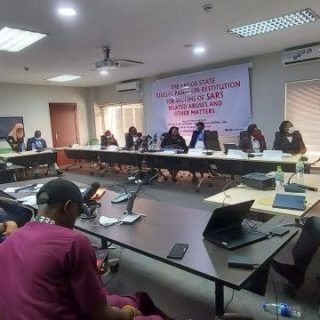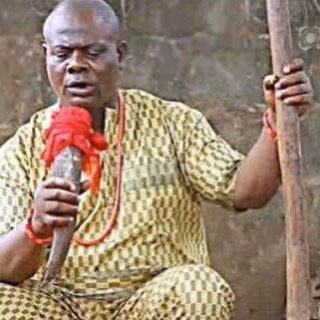Citizen is a column that explains how the government’s policies fucks citizens and how we can unfuck ourselves.
Can the ICC prosecute the Nigerian military?
Many Nigerians are still in grief over the Lekki Massacre which took place on October 20, 2020, when protesters were shot at for exercising their constitutional right to peacefully protest. In the wake of this, several stories — and fake news — have infiltrated the media over what happened, even though video evidence showed officers of the Nigerian military opening fire on Nigerians on scene. The question that has occupied the minds of a lot of people is how Nigerians can get justice, and including if the International Criminal Court can prosecute officers and commander of the Nigerian military.
Read: Who Is Shooting At Peaceful Protesters In Lekki?
Read: The Nigerian Military Has A History of Killing Unarmed Civilians
But what sort of crime did the Nigerian military commit, if it actually did? And, can the International Criminal Court (ICC) prosecute key officers of the Nigerian military, including their commanders?
1. What Is The International Criminal Court?
In June 1998, representatives from 148 countries gathered in Rome, Italy to agree on how to establish an “International Criminal Court”.
After five weeks of discussions, 120 countries voted for the creation of an International Criminal Court under the “Rome Statute”.
In 2002, after the agreement was signed by 60 countries into their national laws, the ICC became the first and only international court with the capacity to prosecute a person with the international crimes of genocide, crimes against humanity, war crimes and the crime of aggression.
2. How Does The International Criminal Court Work?
*Green – Party to the ICC
*Orange – Didn’t sign
*Yellow – Signed (but never passed the ICC statute into law)
The ICC works complementary to national courts. That is, it cannot prosecute a crime except a country’s courts are unwilling or cannot prosecute the crime.
Also, the International Criminal Court cannot prosecute every criminal case in every part of the world.
The three important things the ICC considers before prosecuting a case include:
- Subject-matter jurisdiction: Is the crime a genocide, a crime against humanity, a war crime or a crime of aggression?
- Territorial or personal jurisdiction: Was the crime committed in a country that has agreed to the ICC’s rules or by a person who is a citizen of a country that has agreed to the ICC’s rules.
- Temporal jurisdiction: The ICC officially began operation in June 2002. So it does not have the capacity to prosecute international crimes before July 2002.
3. Can the International Criminal Court Prosecute The Officers of The Nigerian Military?
Nigeria is a party to the ICC’s rules. Nigeria signed the Rome Statute into our national law on the 27th of September 2001, and it became binding on Nigeria from 1st July, 2002.
So, Nigeria is bound by the Rome Statute, and the ICC has “territorial jurisdiction” to prosecute international crimes committed in Nigeria or by Nigerians.
4. What Is The Process?
The ICC prosecutes individuals and not groups or countries, and no one has immunity or is exempted from the ICC’s prosecution, even if they are currently holding a high executive position.
To begin an investigation, anyone who is from a country that is a member of the ICC can request the office of the prosecutor to carry out an investigation on a particular issue. The prosecutor can also begin investigations on their own, if they believe that a crime should be investigated.
Already, Nigerian groups like the Socio-economic Rights and Accountability Project (SERAP) have sent petitions to the ICC about killings of several people during the #EndSARS protests in Abuja, Kano, Lagos, Osun, Plateau and other states in Nigeria.
Over the years, the ICC has publicly prosecuted 44 people. It has issued arrest warrants for 36 people and summoned 8 others. 6 people are in the court’s detention. Former Sudanese President, Omar Al-Bashir, was also prosecuted by the International Criminal Court for war crimes.
We hope you’ve learned a thing or two about how to unfuck yourself when the Nigerian government moves mad. Check back every weekday for more Zikoko Citizen explainers.
COMPONENT NOT FOUND: donation





